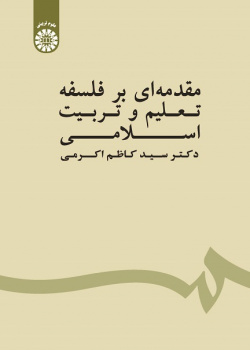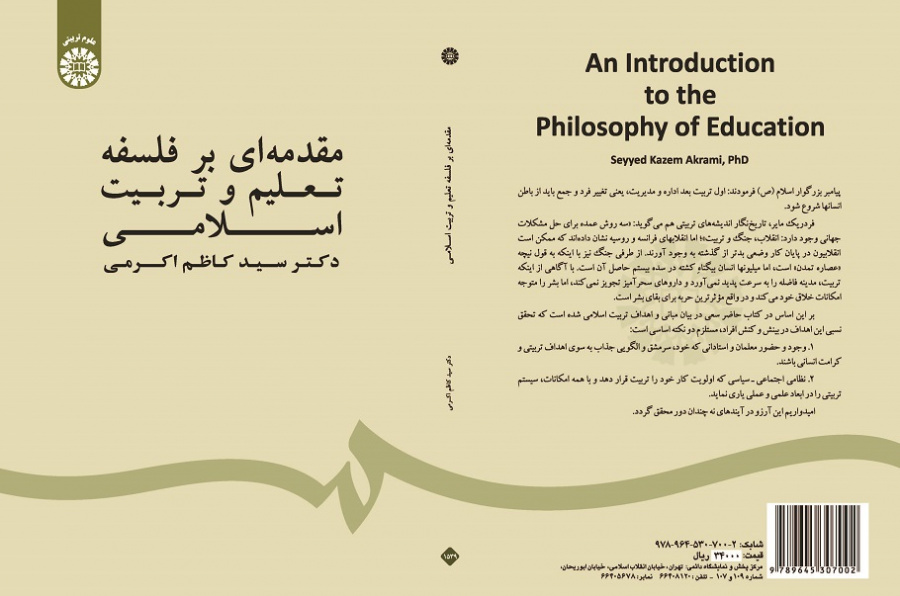

An Introduction to the Philosophy of Islamic Education
The Holy Prophet of Islam (PBUH) said: First, education, then administration, that is, the change of the individual and the collective, must begin from within human beings. “There are three main ways to solve global problems: revolution, war, and education,” says Frederick Mayer, a historian of educational thoughts. But the French and Russian revolutions have shown that revolutionaries may end up in a worse situation than before. On the other hand, war, although, in Nietzsche’s words, the “essence of civilization,” is the result of millions of innocent people killed in the twentieth century. Aware that education does not create the utopia quickly and does not prescribe a magical remedy, but it directs human beings to their creative possibilities and is in fact the most effective weapon for human survival. Accordingly, in this book, an attempt has been made to express the principles and goals of Islamic education that the relative realization of these goals in the vision and character of individuals requires two basic points: 1) Existence and presence of teachers and professors who are themselves, an attractive role model towards educational goals and human dignity. 2) A socio-political system that prioritizes its work and helps the educational system in scientific and practical dimensions with all its facilities. We hope that this dream will come true in the not too distant future.





